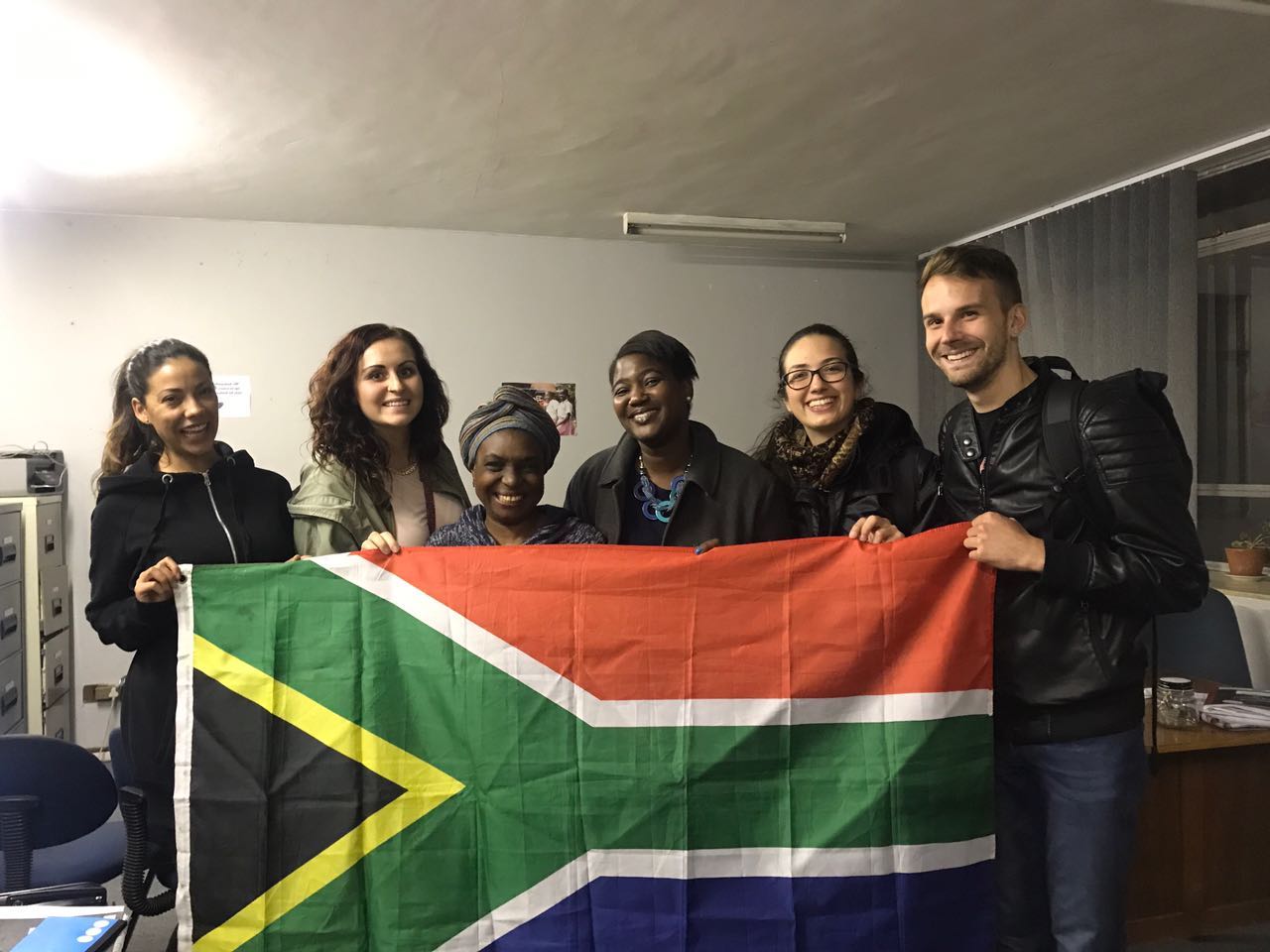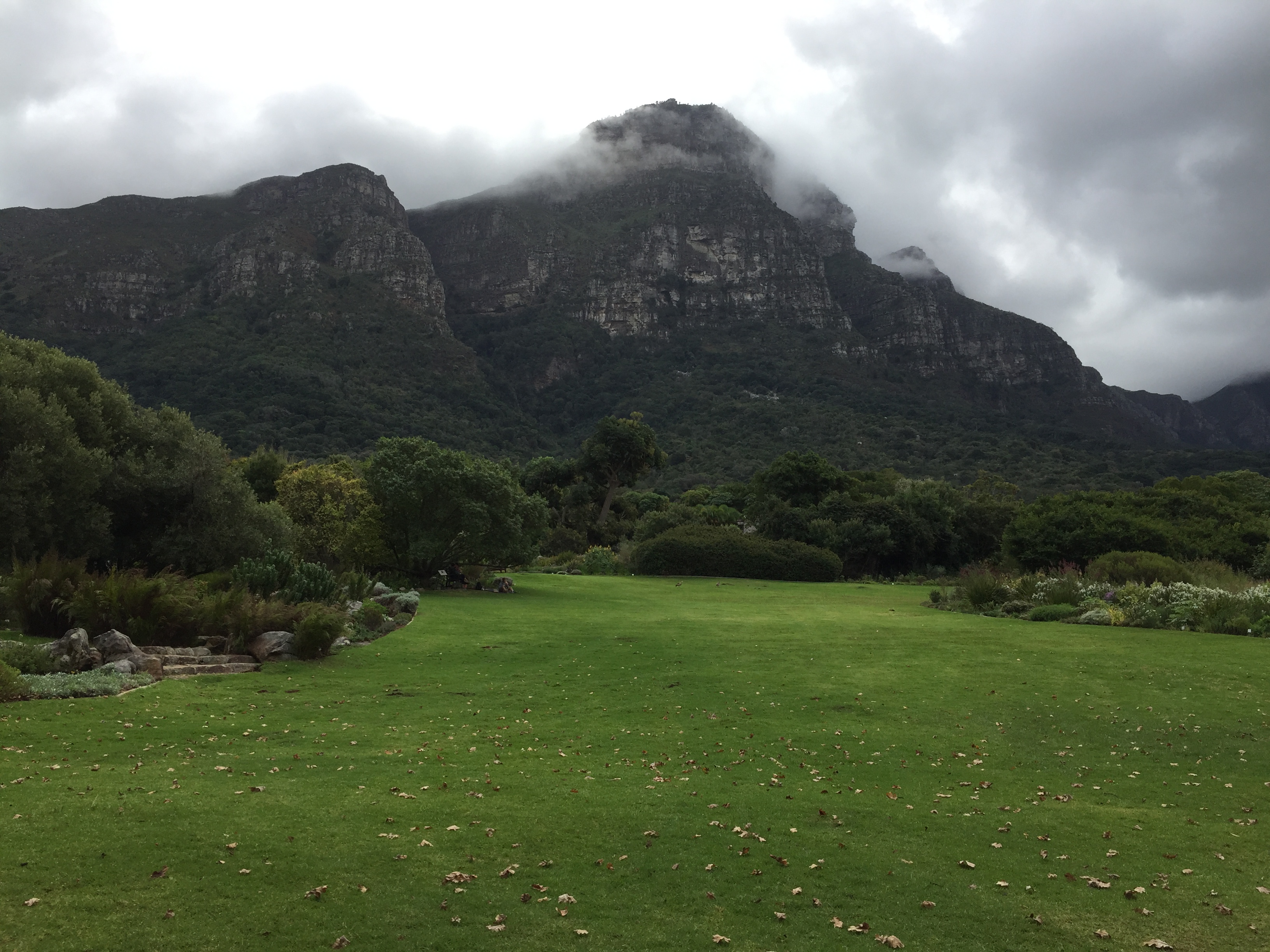Week 2 - A Woman from Gugulethu
Week 2 - A Woman from Gugulethu
This week has proven calmer with after-work excursions, but more rigorous with cases, work meetings, and meeting new interns. More interns seem to arrive every day, and at some points there have been six or seven of us sitting around the center roundtable. The office is full of energy, anticipation, and ideation, as all of us bring our experience and ideas together (from the U.S., France, Belgium, South Africa, and Denmark) to plan and continue projects for this winter in Cape Town. PASSOP has recently received more funding, and the directors and program managers have started to put their ideas for expansion and providing better service to clients into motion. However, concerns about sustainable resource mobilization, and how to draw the fine line between empowering clients versus creating unhealthy dependency, qualify the excitement and new initiatives, pushing all of us to stay focused and think critically about how to best serve PASSOP and our clients.
Right now, working hours are split between the legal team and the LGBTI refugee advocacy program. This makes for quite the rigorous workday, and a need to stay on top of time management. With the increasing number of interns that come to work for PASSOP, we have devised a new schedule for interns to work remotely and to have days off. So, now, communication and making sure that all interns are aware of deadlines or new projects has become crucial. The bright side is that everyone working at PASSOP wants and feels thrilled to work here; we all talk cheerfully, offer to help one another, and maintain individual and group dedication to the organization’s mission and to the clients.
The appeals process for refugee status determination proceedings incorporate a variety of legal and empirical research and writing skills, and I still feel surprised at the multi-faceted and diverse nature of analyses for different cases. South Africa’s Refugees Act, No. 130 of 1998, provides for determinations that inquire into a person’s subjective experiences, as well as objective assessments of the context and situation from which the client has fled. Thus, traditional legal analysis, or applying the facts of a client’s case to the law, usually must cohere with empirical, international, sociopolitical research of the situation in the person’s country of origin. As the situations in different countries change, status determination officers may find reason to deny status to a person. And then, most often, administrative officers simply make decisions using institutional bias against refugees, and the provided, documented reasoning (if any) often falls (very) short of the standard required by South Africa’s constitution and the Promotion of Administrative Justice Act. Altogether, this requires most appeals to include discussion of legal substance, legal procedure, and empirical political, social, and historical research; all of this on top of helping refugees with any possibilities for accommodation, food, work, etc., while they wait for (or appeal) the outcome of their status determination proceeding.
On Thursday this week, PASSOP met with the organization Beauty Behind Bars. Only one year old, this organization works with women in prison to bring some semblance of femininity and normalcy back into their daily routine. Volunteers meet with incarcerated women, called “flowers” by the organization, to do salon-styled hair, nail, skin, and relaxation treatments. The founder and director, Cleopatra Jacobs, approached PASSOP interns with requests to help make a website for the NPO, and brainstorm ideas for skills training and other rehabilitation possibilities. The meeting ran late, but it was well worth it to exchange stories and ideas and hear Cleo’s own story about her life as a business woman after childhood in one of the local townships, Gugulethu. We hope to continue working with Beauty Behind Bars and possibly kickstart a joint initiative to help incarcerated women who give birth while in prison and their children.

At the end of the week, my friend Ivette and I (with the addition of the fabulous Emma) kept to our weekly hike and explored the beautiful Botannical Forest Reserve of Kirstenbosch below Table Mountain. Cape Town has so much to do, especially for outdoor types.
